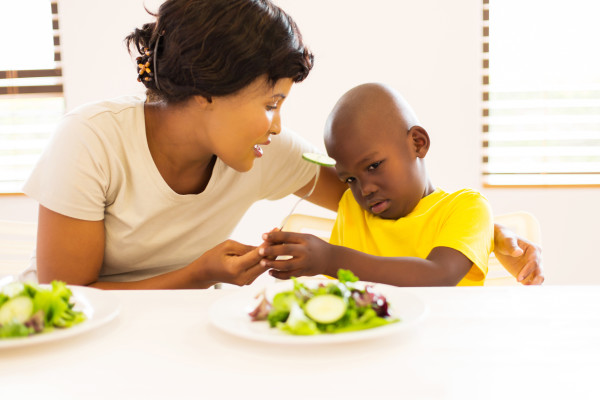
I am often approached by many parents who are asking “What do I do? I have a picky eater?” It is an honor to be asked questions like this because I have studied this subject and gained experience about picky eaters by working with tens of thousands of kids since 2009.
Picky eaters can be teens, tweens and younger. Even parents can be picky eaters. Being a picky eater, except for a medical reason, is usually a sign of a deeper problem.
To explain the solution requires me to explain what the rest of the world does.

This turns into resistance when they are challenged to go beyond. Whenever they are faced with trying something new. The rejection adults feels can actually shatter a family.
I ran across author Pamela Druckerman’s Bringing Up Bebe- One American Mother Discovers the Wisdom of French Parenting. This book is about picky eaters.
Please note that a limited diet creates many health and behavioral issues later for both the parents and the picky eater. I recommend hoping on the cure faster than waiting until the child is 18 years of age.
Most French families have a very different experience, as do many of the 3rd world countries. there kids know how to sit and enjoy their meals, eating their vegetables and fish and all kinds of other foods. These kids enjoy their foods and the special quality times with their families. How can this be?
Click here to go to Pamela Druckerman’s website… Bringing Up Bebe
By paying close attention to how French methods with children one thing was plain – attitude – most of the world has a different attitude about the malleability of their children’s preferences.
In America, we assume more than other parts of the world, that kids have inherent likes and dislikes, whereas the rest of the world’s view on food is the parent must education their child and that appreciation for different food is something cultivated over time.
Granted our American lifestyle moves at a fast pace, but parents…please recognize that if you spend a few minutes at the very beginning, as soon as possible, educating your child(ren) about food, that their attitudes could be molded, and therefore, you don’t have the picky eater attacking your family.
A key to avoiding and overcoming the picky eater syndrome is to expose kids to changes. There is no category of food called “Kid’s Food”. Kids and adults, from the start can eat the same thing.
I’m not speaking about infants or special needs children where there are actual reflexes and musculature differences such as extreme gag reflexes and esophical issues. I’m not speaking about infants who are still on baby food. I’m speaking about kids who are exploring the world of regular food with their parent(s).
Let the kids learn how other kids eat. This is not a condemning thing, but the child will be able to see what is “normal”.
Allow children to at least take one bite. Adults need to invite children to not snub their nose up in discontent. Remember before, I told you it starts with the “attitude”. Is your attitude negative on food? If so, you may need to adjust your attitude first to get your picky eater to accept changes that you model as their parent.
In French schools, there may be four-course menu every day. It may start with a vegetable dish, then the main course. There may be a cheese course, then dessert. These children have more ability to know what they are tasting than we do in America. They may dislike something, but at least they have tried it. They know what it does taste like.
This allows them to entertain their guests even if they don’t like some of the items they are serving. That really is a great way to honor your guest and value friendships. Parents and adults need to have an attitude towards teaching children about food.
Some parents are shocked when their daughters eat blue cheese, yet they themselves, don’t like it. Same with any fruit or vegetable. Allow kids to have their own preferences. Adults should not discourage kids from liking foods that are different.
My daughter likes mustards, vinegars, sauces, and explores all kinds of cuisines. Yet her mother, doesn’t. She is a picky eater. I am so glad that I could put this information to practice and I have never had a picky eater problem. Also I need to mention that I have 3 boys. They were never picky eaters. Now they are grown, and they enjoy all that food has to offer.
Adults in America need to cultivate patience as well. One doesn’t need to cater to their children ready to entertain them for the entire day. Around the world, they don’t have the things we have. Kids are so happy just to get on a blanket with their parents and play with just one ball. If another adult comes up to speak with their parent, the child plays by them self. The adults who are talking to each other don’t get disturbed.
Most of the world has a real view of balance in that no one part of their lives overwhelms the other part. If you are an employee, a parent, a member of social groups and so on, you must educate your children that these interests help build health and mental well-being.
American parents are also overwhelming their children with activities. I have Kindergarten children in our cooking clubs that tell me they have 5 to 10 different activities each week, scouting, art, drama, sports, music, cooking…
This is not necessary. When we grew up, our parents, and their parents, kids learned by watching. There is no reason a child can’t watch for a few minutes, then come in and engage themselves unless their parent(s) haven’t taught them how. But when the lifestyle becomes so chaotic with 5 to 10 activities, and brothers and sisters and schools…the picky eater could be a child rebelling even if they can’t speak of it directly. Help educate your children on a bit of independence. Don’t smother them with activities. Let them process the activities. Don’t create an overwhelming environment for your children.
Bottom Line: Attitude is the beginning. Parents and adults are responsible for educating their child(ren) about how to have proper attitudes towards people, places and things like food. The child’s health depends on it. Their emotional well being depends upon it.
It is my prayer that this article will benefit each and every reader. Please like us on Facebook and Follow us on Twitter. There will be other posts coming out that help with family issues.
© Chefsville. All Rights Reserved.